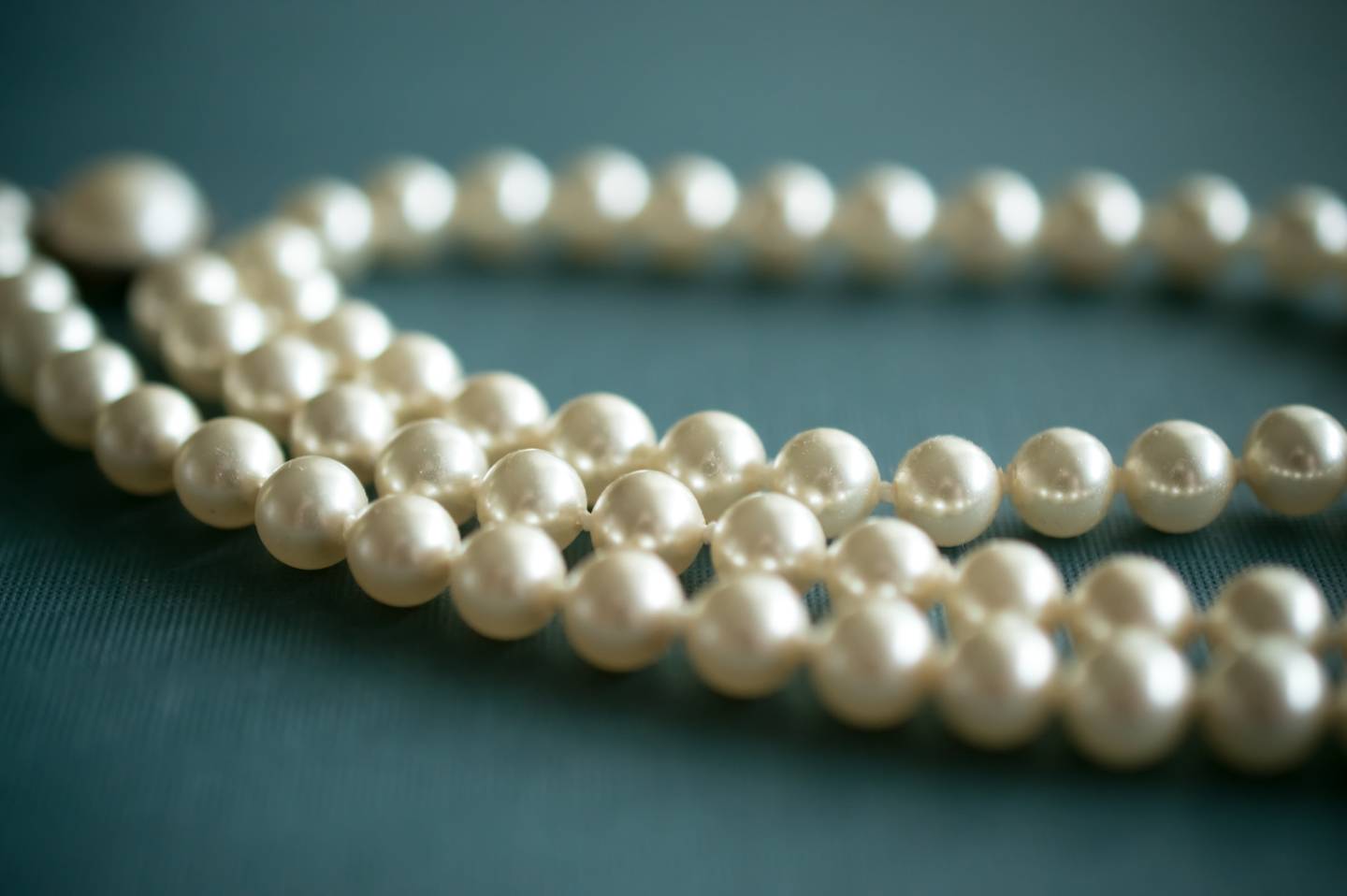Từ Vựng Bài Đọc The Pearl
Xem danh sách từ vựng Vocabulary của đề The Pearl được lấy từ cuốn Actual Test 6 - Test 5-Passage 1. Phần từ vựng IELTS của bài chứa bộ từ, bao gồm phát âm, định nghĩa, ví dụ và cả hình ảnh sẽ giúp thí sinh IELTS dễ hiểu nội dung của đề bài hơn
ancient
/ˈeɪnʧənt/
(adj). Belonging to the very distant past and no longer in existence.
pearl
/pɜrl/
(noun). a small hard shiny white ball that forms inside the shell of an oysterand is of great value as a jewel
wealthy
/ˈwɛlθi/
(adj). Having a great deal of money, resources, or assets; rich.
regard
/rəˈgɑrd/
(verb). consider or think in a certain way
cultivate
/ˈkʌltəˌveɪt/
(verb). to prepare and use land for growing plants or crops
several
/ˈsɛvrəl/
(pronoun). More than two but not many.
irritant
/ˈɪrətənt/
(noun). A thing that is continually annoying or distracting
deform
/ˌdiˈfɔrm/
(verb). to change or spoil the usual or natural shape of something
oyster
/ˈɔɪstər/
(noun). a large flat sea creature that lives in a shell, some types of which can be eaten either cooked or uncooked, and other types of which produce pearls
numerous
/ˈnumərəs/
(adj). Great in number; many.
complication
/ˌkɑmpləˈkeɪʃən/
(noun). A circumstance that complicates something; a difficulty.
disease
/dɪˈziz/
(noun). a disorder that produces specific symptom that differs from physical injury
jewellery
/ˈʤuːəlri/
(noun). decorative objects worn on your clothes or body that are usually made from valuable metals
mussel
/ˈmʌsəl/
(noun). any of a number of bivalve mollusks with a brown or purplish-black shell
reject
/ˈriʤɛkt/
(verb). Dismiss as inadequate, unacceptable, or faulty.
factor
/ˈfæktər/
(noun). A circumstance or a fact
evaluate
/ɪˈvæljuˌeɪt/
(verb). Form an idea of the amount, number, or value of; assess.
lustre
/ˈlʌstər/
(noun). a gentle sheen or soft glow, especially that of a partly reflective surface.
imitation
/ˌɪməˈteɪʃən/
(noun). the act of copying sb/sth
worthless
/ˈwɜrθləs/
(adj). having no real value or use.
mechanism
/ˈmɛkəˌnɪzəm/
(noun). A natural or established process by which something takes place
distinguish
/dɪˈstɪŋgwɪʃ/
(verb). recognize or treat (someone or something) as different.
surgical
/ˈsɜrʤɪkəl/
(adj). connected with surgery
implantation
/ɪmplænˈteɪʃən/
(noun). The action of implanting or state of being implanted.
gem
/ʤɛm/
(noun). a precious or semiprecious stone, especially when cut and polished or engraved.
status
/ˈstætəs/
(noun). High rank or social standing
powder
/ˈpaʊdər/
(noun). Fine, dry particles produced by the grinding, crushing, or disintegration of a solid substance
epilepsy
/ˈɛpəˌlɛpsi/
(noun). a neurological disorder marked by sudden recurrent episodes of sensory disturbance, loss of consciousness, or convulsions, associated with abnormal electrical activity in the brain.
freshwater
/ˈfrɛˌʃwɔtər/
(adj). of or found in fresh water; not of the sea
manufacture
/ˌmænjəˈfækʧər/
(verb). mass-produce
glittery
/ˈglɪtəri/
(adj). reflecting a bright, shimmering light.
favorable
/ˈfeɪvərəbəl/
(adj). Expressing approval.
coastline
/ˈkoʊstˌlaɪn/
(noun). The land along a coast.
glossy
/ˈglɔsi/
(adj). smooth and shiny
globe
/gloʊb/
(noun). The earth.
core
/kɔr/
(noun). The tough central part of various fruits, containing the seeds.
ranking
/ˈræŋkɪŋ/
(noun). a position in a scale of achievement or status; a classification
cradle
/ˈkreɪdəl/
(noun). A baby's bed or cot, typically one mounted on rockers.
clam
/klæm/
(noun). A marine bivalve mollusc with shells of equal size.
mollusc
/ˈmɒləsk/
(noun). any animal that has a soft body, no spine, and is often covered with a shell. Many molluscs live in water
secrete
/sɪˈkrit/
(verb). produce and discharge (a substance)
defence
/dɪˈfɛns/
(verb). the action of defending from or resisting attack.
lustrous
/ˈlʌstrəs/
(adj). Having lustre; shining
nacre
/ˈneɪkə/
(noun). Mother-of-pearl
nucleus
/ˈnukliəs/
(adj). The central and most important part of an object,
durability
/dərəˈbɪlɪti/
(noun). The ability to withstand wear, pressure, or damage
irregular
/ɪˈrɛgjələr/
(adj). Not even or balanced in shape or arrangement.
merit
/ˈmɛrət/
(noun). the quality of being good and of deserving praise, reward or admiration
lagoon
/ləˈgun/
(noun). A stretch of salt water separated from the sea by a low sandbank or coral reef.
volcanic
/vɑlˈkænɪk/
(adj). Relating to or produced by a volcano or volcanoes
atoll
/ˈæˌtɑl/
(noun). an island made of coral and shaped like a ring with a lake of sea water in the middle
transplant
/trænˈsplænt/
(verb). to take an organ, skin, etc. from one person, animal, part of the body, etc. and put it into or onto another
graft
/græft/
(noun). a shoot or twig inserted into a slit on the trunk or stem of a living plant, from which it receives sap
mantle
/ˈmæntəl/
(noun). A loose sleeveless cloak or shawl
gonad
/ˈgoʊnæd/
(noun). a male sex organ that produces sperm; a female sex organ that produces eggs
spherical
/ˈsfɛrɪkəl/
(adj). Shaped like a sphere.
bead
/bid/
(noun). A small piece of glass, stone, or similar material that is threaded
glide
/glaɪd/
(verb). To move smoothly and quietly, especially as though it takes no effort
gritty
/ˈgrɪti/
(adj). showing the courage and strength of mind to continue doing something difficult or unpleasant
lab
/læb/
(noun). a laboratory
diver
/ˈdaɪvər/
(noun). a person who wears a diving suit to work under water
reserve
/rɪˈzɜrv/
(noun). a supply of a commodity not needed for immediate use but available if required
contaminate
/kənˈtæməˌneɪt/
(verb). to make a substance or place dirty
pristine
/ˈprɪstin/
(adj). In its original condition
stock
/stɑk/
(noun). The goods or merchandise kept on the premises of a shop
irony
/ˈaɪrəni/
(noun). the amusing or strange aspect of a situation that is very different from what you expect; a situation like this


